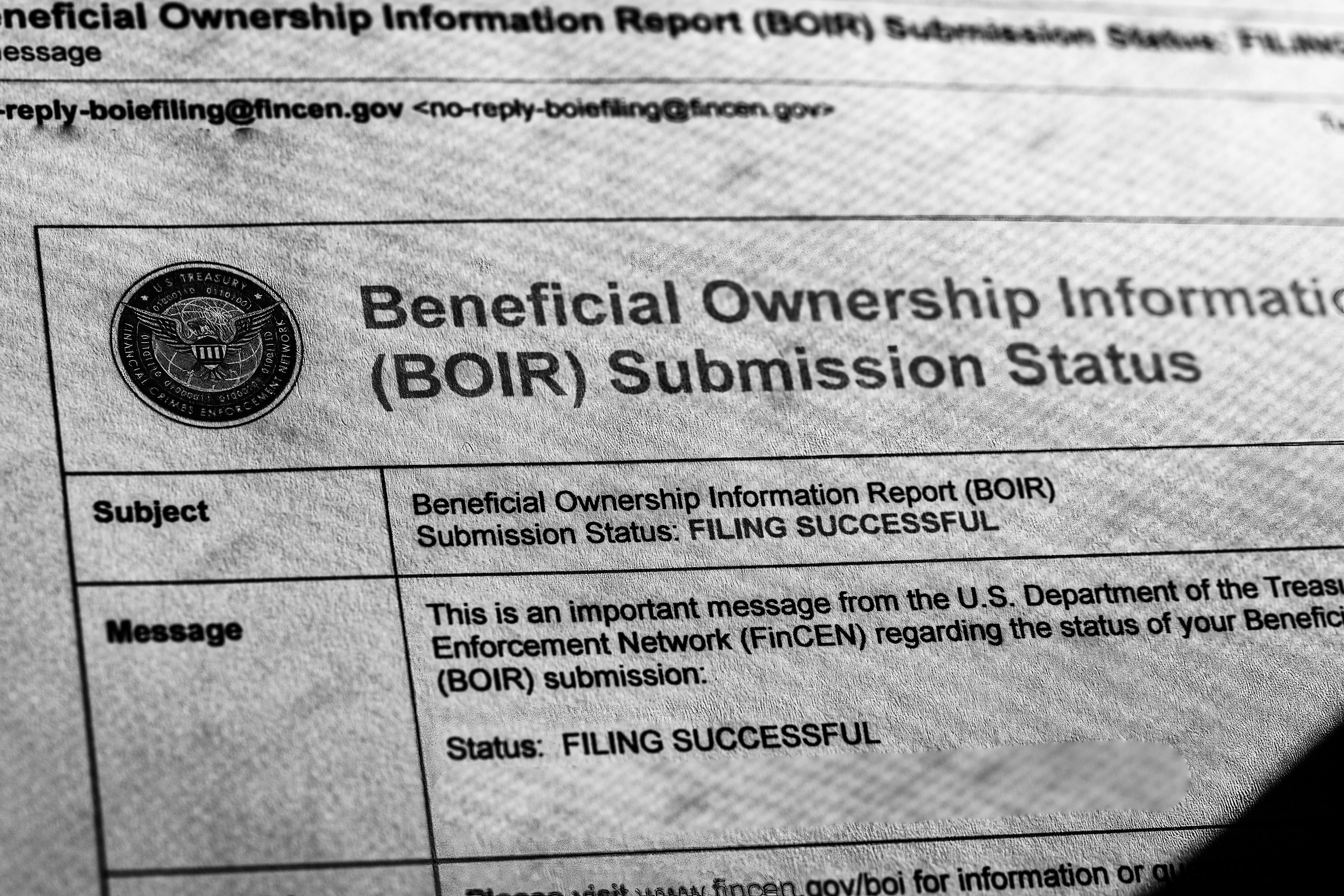Senators, Law Enforcement, National Security, Small Business Voices Call on Treasury to Reinstate Beneficial Ownership Reporting
WASHINGTON, DC – On May 27, FACT joined key voices from Congress, as well as the law enforcement, national security, anti-corruption, small business, and other communities in submitting official comments condemning the Treasury Department’s evisceration of the Corporate Transparency Act (CTA), the most significant U.S. anti-money laundering reform in a generation. These comments were submitted in response to the Treasury Department’s interim final rule limiting the scope of the CTA to just a fraction of a percent of its previous coverage, effectively nullifying the statute in defiance of congressional intent.
The Treasury Department’s decision to limit enforcement of the CTA – which requires certain entities to report basic information on their true, or “beneficial” owners to a secure database – to only foreign entities registered to do business in the United States contradicts years of extensive evidence compiled by Congress and the Treasury’s own risk assessments, which show how anonymous domestic companies threaten U.S. national security, public safety, and fair competition for legitimate businesses.
“The widespread denunciation of Treasury’s illegal move recognizes and reaffirms a simple truth: destroying the Corporate Transparency Act will make Americans less safe,” said Ian Gary, FACT executive director, in a statement. “For decades, anonymous companies have been used to defraud American consumers, smuggle drugs into our communities, and enable hostile regimes to move money into the U.S. financial system with impunity. Treasury must immediately withdraw this disastrous rule and restore the original scope and intent of the Corporate Transparency Act.”
Senators Sheldon Whitehouse and Chuck Grassley also urged the Treasury Department to rescind the rule, and explained that “The rule not only contravenes Congress’s intent as reflected in the CTA’s plain text and legislative history, but it also undermines the operation of a law Congress deemed essential to protecting Americans’ national security and public safety.”
In their own official comments, national security think tanks including the Foundation for Defense of Democracies (FDD) and the Quincy Institute, as well as leading national security experts John Cassara, Nate Sibley, and Albert Torres, forcefully defended the value of ownership information collected under the CTA. Per FDD’s comment: “Anonymous U.S. shell companies are not a theoretical vulnerability — they are a proven vehicle for illicit finance, sanctions evasion, corruption, terrorism, and transnational crime…FinCEN’s decision to exempt domestic entities would allow these practices to continue unchecked.”
In keeping with their long history of support for the CTA, law enforcement groups came out strongly against Treasury’s interim final rule, with comments submitted by the National District Attorneys Association (NDAA), the National Narcotic Officers’ Associations’ Coalition (NNOAC), and the United Coalition of Public Safety (UCOPS). In its comment, the NDAA, which represents district attorneys and their staff across the country, noted that “The proposed rule change as currently drafted would greatly curtail our ability to combat shell companies fueling illegal operations plaguing communities across our country and would jeopardize public safety and our nation’s security.” The NNOAC was more direct: “It is the criminal enterprises – drug traffickers, money launderers, and their financial enablers – who stand to gain if this law is weakened.”
While Treasury’s rationale for curbing the scope of the CTA largely leaned on compliance concerns for small businesses, the Main Street Alliance (MSA) – a network of more than 30,000 small businesses – pushed back on that narrative in its comments, arguing that the benefits of ownership transparency vastly outweigh the costs: “Simply put, gutting the CTA will make it riskier for our members to operate, and tilt the playing field in favor of criminal enterprises and corrupt actors.”
Among other commenters were a group of eight civil society organizations dedicated to combating environmental crimes, who cited recent research indicating that U.S. shell entities play an outsized role in enabling and laundering the proceeds from environmental crimes in the Amazon region: “As these cases indicate, environmental criminals and money launderers are abusing U.S. domestic companies for illicit purposes. Knowing the true owners of U.S. companies, both foreign and domestic, is key to combating these bad actors.”
Treasury’s interim final rule was also denounced in official comments by experts and civil society groups including the Tax Law Center at New York University Law, Transparency International U.S. (TI-US), Citizens for Responsibility and Ethics in Washington (CREW), Jubilee USA, and Open Ownership.
With the comment period for the interim final rule now closed, Treasury is expected to release a final rule in the coming months. FACT urges Treasury to heed the calls of law enforcement, national security, and other experts by fully implementing the Corporate Transparency Act in accordance with congressional intent and the plain language of the law.
###
Notes to the Editor:
- Read FACT’s full comments on Treasury’s interim final rule exempting U.S. domestic entities and individuals from beneficial ownership reporting requirements here.
- The full comment file on Treasury’s interim final rule can be found here.
- Over the coming year, the United States will undergo its fifth round mutual evaluation by the Financial Action Task Force (FATF), the international anti-money laundering standard setting body. With the Corporate Transparency Act’s implementation underway, the U.S. was upgraded to largely compliant under Recommendation 24 in 2024. Backtracking on what entities are covered risks U.S. censure, including “grey-listing” by FATF, and its related economic consequences.
- Recent polling from conservative polling firm McLaughlin and Associates details widespread public support for the Corporate Transparency Act, with 81 percent of respondents agreeing with the statement that “Asking some small businesses to do 20 minutes of paperwork identifying their true owner is a small price to pay for keeping our communities safe from drug trafficking, terrorist financing, and other financial crimes.”

